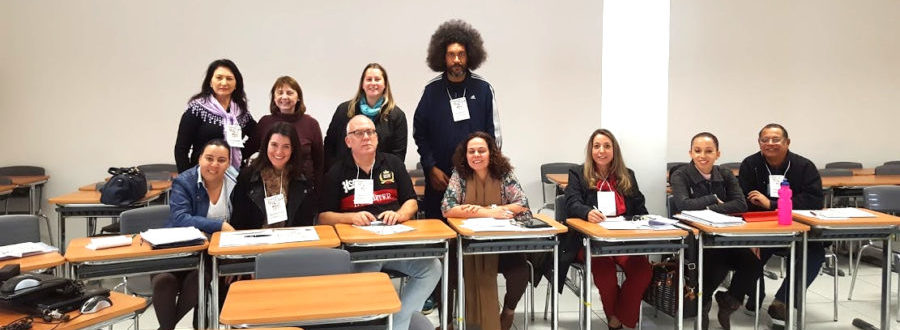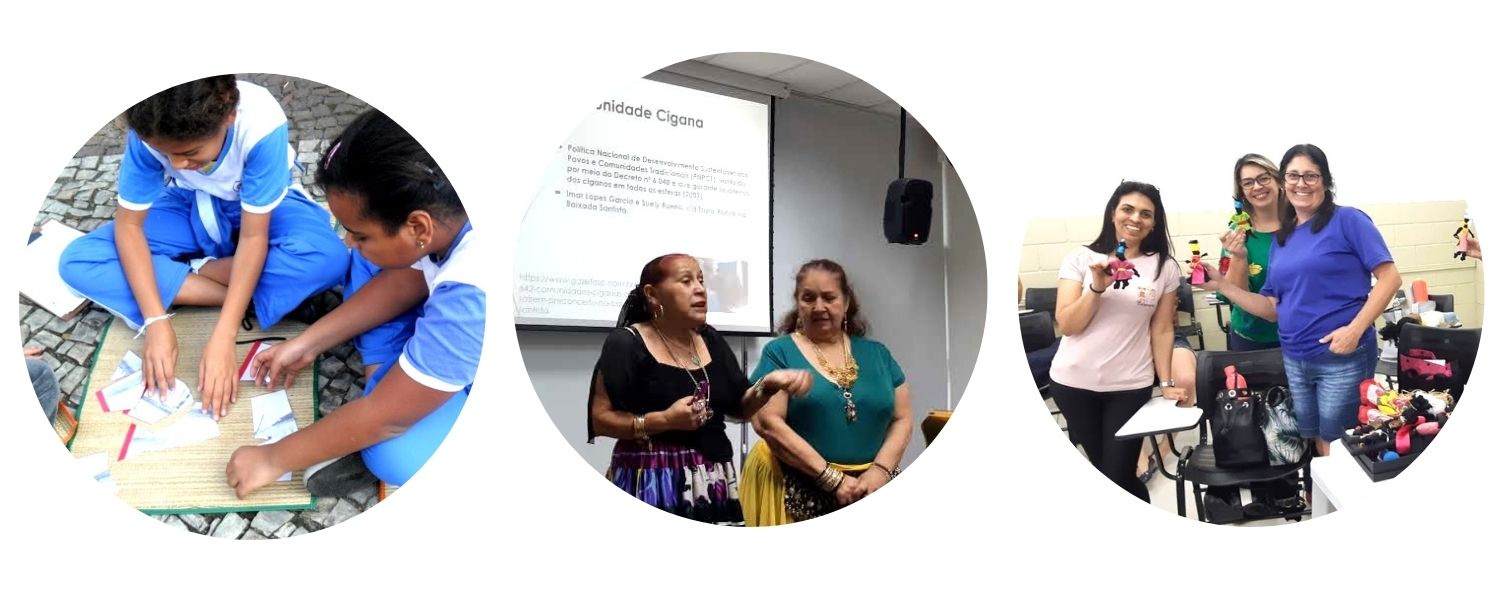
SANTOS: Anti-racist education for the inclusion and valorisation of ethnic and cultural diversity
Santos is a port municipality located on the coast of the state of São Paulo in Brazil. Its economic activity is primarily based around tourism, fishing and trade. Founded in 1546 within the context of European colonisation and slavery, it is one of the oldest cities in Brazil and was the scene of an intense resistance to slavery as well as the abolitionist movement. With around 433,311 inhabitants, 72.16% of its population is white, while 26.71% is black or mixed race, 0.99% Asian and 0.11% indigenous.
Over 520 years since the arrival of European colonisers in Brazil and 130 years since the abolition of slavery, indicators related to the education, social advancement and poverty of the black, mixed race, indigenous and migrant populations continue to demonstrate inequalities at the national and local levels.
These inequalities are reinforced by an education based on Eurocentrism, where the contributions of the African civilisation and diaspora, of Afro-Brazilian culture, and of indigenous peoples in the historical and cultural construction of Brazil have been systematically made invisible or approached from a distorted perspective. An education in which important reflections on issues such as institutional racism, the myth of racial democracy, prejudice, colourism and white privilege have also been ignored.
In order to transform this reality, in 2003 a federal law made it mandatory to include the teaching of Afro-Brazilian and African history and culture within the educational curriculum of all public and private schools in Brazil.
In this context, since 2004, the Secretariat of Education in Santos has been undertaking actions in favour of anti-racist education, with the aim of giving a voice and prominence to historically marginalised groups and restoring the value of their tangible and intangible heritage. To this end, a programme has been set up that integrates, among other actions: training for the education community and citizens; the reorganisation of the school curriculum from the perspective of diversity and anti-racism; urban routes to increase the visibility of the contributions of the different communities to Brazilian history and culture; networking with community actors and political advocacy.
The project enables an average of 360 teachers per year to participate in specialised training, either classroom-based or via virtual format. Further, training activities open to the community are offered in which an average of 100 people per year participate. Educational urban routes that promote experiential and critical reflection also attract nearly 3,000 students annually.
Among the changes generated by the initiative, the growing number of cross-cutting projects in schools can be highlighted, which has increased from three projects in 2010 to 45 in 2019. Through these actions, the reading of works by previously ignored authors has been encouraged, emphasis has been placed on valorising the cultural and aesthetic expressions of marginalised communities, and new heroes and heroines have been discovered. In the same way, schools have made a commitment to the appreciation of black aesthetics that have been stigmatised until now (such as Afro hair), acting decisively in response to reports of cases of racism and actively involving families in the different proposals. At times, the changes have involved very small but significant details, such as introducing coloured pencils in schools that reflect different skin tones.
Actions to increase visibility and exchange good practices have also been supported and, since 2015, thanks to the implementation of the Support and Guidance Forum (with the participation of representatives from the municipal level, the city’s different ethnic communities, public bodies, schools and universities), the community has been involved in proposing actions and following up interventions, with a focus on political advocacy.
Presented by: Santos City Council. Secretariat of Education
Contact: Sra. Cristina Barletta
e-mail: seduc@santos.sp.gov.br
More information at the IAEC Bank of Experiences.

